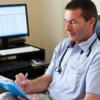The Problem with Over-Screening

Over-screening, also referred to as unnecessary screening, is the practice of medical screening with no medical reason to do so. A screening test is a medical test that is performed on a healthy individual who does not convey symptoms of a severe disease or medical condition. The intent of the test is to identify pathogens of the disease and prepare both the individual and the doctor to respond to it.
Nowadays, several tests exist to help identify countless diseases. The common rule is that individuals should get screened for a medical condition only when there is a primary reason, such as from evidence based on their physical examination results or medical history. However, over-screening is becoming problematic. It can lead to invasive or unnecessary treatment when an individual receives a false-positive result. A false positive result indicates that an individual has a specific medical condition or disease when, in fact, they do not have it. In such instances, the individual who has received the false positive result is likely to undergo further unnecessary screening. Likewise, results can be false-negative, thus leading an individual to experience a sense of relief and ignoring their symptoms when they should be paying attention to them.
A diagnostic test is any approach that is taken to gather medical information for the purpose of conducting a clinical decision, that is, a diagnosis. Examples of diagnostic tests include x-rays, results from physical examinations, biopsies, and more. Diagnostic testing helps doctors to analyze and assess patients’ disease probability. The five main reasons why diagnostic tests are conducted include the following:
- To provide prognostic information;
- To screen for disease in patients experiencing symptoms;
- To identify a proper diagnosis in patients experiencing symptoms;
- To monitor treatment through present side effects or benefits;
- To verify that an individual does not have a specific disease or medical condition;
Many patients believe that all of this testing should be performed; however, this is never the case. Doctors decide which tests to perform on what types of patients. The benefits of diagnostic and screening tests, such as finding cancer at an early stage or preventing timorous growths, must be weighed against the risks (pain, anxiety, etc.) of the tests at all times. For this reason, the American Cancer Society has created appropriate guidelines for cancer screening, advising both patients and doctors about the types of screenings tests, when to get them, at what age, and how frequently.
Women should speak with their doctors about any unusual breast changes and their personal risk for breast cancer. At the ages of 40-54, women should undergo breast cancer screening through mammograms on a yearly basis, if they wish to do so. Those who are 55 and older can decide whether to continue yearly breast cancer screening or do so every two years. All women should be aware of the potential benefits and risks that are brought about by breast cancer screening.
At the age of 50, both women and men should undergo one of the following tests: colonoscopy, CT colonoscopy, flexible sigmoidoscopy, or double contrast barium enema. Those with a personal or family history of colon cancer should consider earlier screening. The most important thing is for patients to speak with their doctor about which tests are right for them.
- Cervical cancer
Women of ages 21-29 should undergo cervical cancer tests – a Pap test - every three years. Women of ages 30-65 should conduct a Pap test and HPV test every five years. Those over the ages of 65 who have undergone regular cervical cancer testing over the past decade and received normal results do not need to receive additional tests. Yet, cervical cancer screening may be different for a few women due to factors such as personal or family history and for this reason, it is necessary to speak with a healthcare professional.
- Prostate cancer
Men should undergo screening for prostate cancer at the age of 50. Those who are at higher risk should consider earlier screening, starting at the age of 45. Men who are at even higher risk due to a personal or family history of prostate cancer should speak with their doctor about even earlier screening at the age of 40. In any case, being aware of the benefits and risks of prostate cancer screening is highly advised.
- Lung cancer
Screening in individuals who are at average risk of lung cancer is not recommended. However, there are a few screening guidelines for those at high risk of the condition. High risk refers to individuals aged 55-74 who have a 30 year history of smoking and current smokers. Lung cancer screening is conducted with a low-dose CT scan of the chest on a yearly basis.
While screening offers the best opportunity to detect cancer at an early stage, recommendations for proper screening should be followed. Doctors advise patients to be aware of the choices that they make, as they are likely to affect their overall health and quality of life. They recommend that patients:
- Maintain a healthy weight;
- Maintain healthy eating habits with a diet rich in fruits and vegetables;
- Get regular physical exercise;
- Limit their amount of alcohol intake;
- Quit smoking;
- Protect their skin from exposure to direct sunlight, toxic chemicals and other harmful substances;
- Undergo regular check-ups;
- Are aware of their personal and family medical history ;
- Are aware of the benefits and risks associated with diagnostic and screening tests;
A recent study found that false-positive results and over diagnosis in women aged 40-59 costs the nation over $4 billion dollars on an annual basis. In the United States, screening tests, particularly for cancer, are conducted far more than in other developed countries. Billions of dollars are spent on cancer screening, including $3 billion dollars for prostate cancer, $6 billion dollars for cervical cancer, and over $8 billion dollars for breast cancer.
The continuous debate over screening in preventing specific diseases illustrates common problems as well. Most patients are not aware of the side effects of screening. Likewise, both false-positive and false-negative results can cause stress, additional exposure to harmful treatments, as well as unnecessary financial costs. “There is no benefit to "early detection" unless the detection leads to an intervention that will either improve the quality of life or extend life. The vast majority of current screening programs does not meet these criteria, and in fact worsens quality of life and leads to serious harms. Our focus on early detection is well-intentioned, but it is time to reassess as the harms are outweighing the benefits” said Rita Redberg, a cardiologist and professor of Medicine at the University of California. Still, there is hope. While more work remains ahead to cut down on unnecessary testing costs, the total cost of screening has decreased over the past few years.
Screening tests remain a significant part of modern medicine and like several areas that deal with healthcare, screening is a complicated issue. “The truth is screening is a mixed bag. It makes more sense for some diseases than others and it makes more sense for some individuals than others. But it should always be an informed choice” said Dr. H. Gilbert Welch, a general internist at the White River Junction VA and professor of Medicine at the Dartmouth Institute. Factors that determine the proper balance include diagnostic tests, risks of treatments, and frequency of the screened patient population. However, if properly applied, they are capable of saving the lives of countless individuals. “As patients, we should therefore approach screening with eyes wide open, willing to acknowledge the small benefits and the substantial possibility of harm. We should also recognize that there are still many effective steps we can take to reduce our risk of cancer and other life-threatening conditions: avoiding smoking, maintaining a normal weight, and exercising regularly, for example” said Dr. Elliot Fisher, professor of Medicine and director at the Dartmouth Institute.











